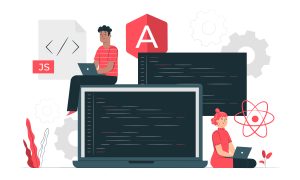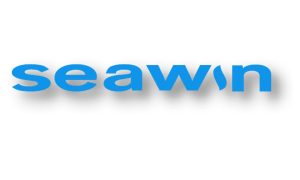In today’s rapidly evolving web development landscape, staying up to date with the latest tools and technologies is crucial for success. Angular, a widely used JavaScript framework, empowers developers to build robust and scalable web applications. To make the most of Angular’s capabilities, it’s essential to have a toolkit of reliable and efficient tools at your disposal. Explore the essential tools for the Angular framework, helping you streamline your development process and unlock the full potential of Angular.
Must-Have Tools for Angular Framework

Angular, being a versatile and powerful framework, offers a vast ecosystem of tools and libraries to enhance the development experience. By utilizing the following essential tools, developers can streamline their workflow, improve code quality, and deliver exceptional Angular applications.
1. Angular CLI: Simplify Your Development Workflow
Angular CLI (Command Line Interface) is an essential tool that simplifies the process of creating, building, and deploying Angular applications. With Angular CLI, you can quickly generate components, services, modules, and other Angular artifacts using simple commands. It also provides built-in support for testing, linting, and bundling your Angular app. By leveraging the power of Angular CLI, developers can save significant time and effort during the development process.
2. Visual Studio Code: The Ultimate IDE for Angular
Visual Studio Code (VS Code) is a lightweight yet powerful integrated development environment (IDE) that has gained immense popularity among developers, especially for Angular development. It offers a wide range of features such as IntelliSense, debugging capabilities, Git integration, and an extensive marketplace of extensions. With the Angular Language Service extension, developers can benefit from enhanced IntelliSense, code navigation, and error checking specific to Angular.
3. Angular Material: Responsive UI Components
Angular Material is a comprehensive UI component library that follows Google’s Material Design guidelines. It provides a rich set of pre-built, fully customizable UI components for creating modern and responsive Angular applications. By using Angular Material, developers can ensure a consistent and visually appealing user interface, saving precious development time and effort.
4. Augury: Tool for Debugging Angular Apps
Augury is a powerful Chrome extension developed by the Angular team that enhances the debugging experience for Angular applications. It provides insights into the component tree, application state, and performance metrics. With Augury, developers can easily identify and resolve issues, optimize performance, and gain valuable insights into their Angular app’s structure and behavior.
5. RxJS: The Reactive Programming Library for Angular
RxJS (Reactive Extensions for JavaScript) is a powerful reactive programming library that is an integral part of the Angular ecosystem. It enables developers to handle asynchronous operations, event handling, and data streams in a more elegant and declarative manner. By leveraging RxJS observables and operators, developers can write cleaner and more maintainable code, resulting in more robust and scalable Angular applications.
6. Jasmine: Test Your Angular Code
Jasmine is a popular testing framework for JavaScript applications, including Angular. It provides an expressive syntax for writing unit tests, making it easy to define test suites, test cases, and assertions. Jasmine seamlessly integrates with Angular’s testing utilities, allowing developers to write comprehensive tests for components, services, and other Angular artifacts. With Jasmine, developers can ensure the correctness and reliability of their Angular codebase.
7. Protractor: End-to-End Testing for Angular Apps
Protractor is an end-to-end testing framework specifically designed for Angular applications. It enables developers to write automated tests that simulate user interactions and verify the application’s behavior across different browsers. Protractor works seamlessly with Angular’s built-in testing utilities and provides additional features like automatic waiting, page object pattern, and robust error reporting. By utilizing Protractor, developers can automate their testing process and ensure the quality of their Angular apps.
8. Angular Universal: Server-Side Rendering for Angular
Angular Universal is a powerful tool that enables server-side rendering (SSR) for Angular applications. SSR improves performance and search engine optimization (SEO) by rendering the initial HTML on the server and sending it to the client. This approach enhances the perceived loading time and ensures that search engines can crawl and index the content effectively. With Angular Universal, developers can provide fast and SEO-friendly Angular applications with minimal effort.
9. Cypress: Powerful E2E Testing for Modern Web Applications
Cypress is a next-generation end-to-end testing framework that offers a delightful developer experience. It provides a comprehensive set of features, including real-time reloading, time-travel debugging, and automatic waiting, making it easy to write reliable and efficient end-to-end tests for Angular applications. Cypress’s intuitive API and built-in capabilities make it a popular choice for developers who want to ensure the quality and stability of their Angular apps.
10. NGRX: State Management Made Easy
NGRX is a powerful state management library for Angular applications based on the Redux pattern. It helps developers manage the application state, handle complex data flows, and facilitate communication between components. With NGRX, developers can maintain a single source of truth, make state changes predictable, and improve the scalability and maintainability of their Angular apps.
11. Webpack: Bundling and Optimizing Your Angular App
Webpack is a popular module bundler that plays a crucial role in building and optimizing Angular applications. It analyzes the application’s dependencies, creates an optimized bundle, and handles various optimization techniques like code splitting, tree shaking, and minification. Webpack also offers a vast ecosystem of plugins and loaders, allowing developers to customize the build process and enhance their Angular app’s performance.
12. Angular Language Service: Enhanced Language Support
The Angular Language Service is a language server protocol implementation that provides enhanced language support for Angular applications. It powers features like intelligent code completion, error checking, and navigation within the development environment. By installing the Angular Language Service extension in your IDE, you can benefit from real-time feedback and productivity-enhancing features while writing Angular code.
13. Compodoc: Generate Documentation for Angular Projects
Compodoc is a documentation tool specifically designed for Angular projects. It analyzes the project’s source code, extracts metadata, and generates comprehensive and visually appealing documentation. Compodoc provides valuable insights into the project’s architecture, components, services, and dependencies, making it easier for developers to understand, maintain, and collaborate on Angular applications.
14. Git: Version Control for Collaborative Development
Git is a distributed version control system that plays a vital role in collaborative software development, including Angular projects. It allows developers to track changes, manage different versions of their codebase, and collaborate seamlessly with other team members. Git also provides features like branching, merging, and conflict resolution, making it an essential tool for maintaining code quality and ensuring smooth development workflows.
15. TypeScript: The Superset of JavaScript for Angular
TypeScript is a statically typed superset of JavaScript that adds optional type annotations and advanced language features to JavaScript. It is the primary language used for Angular development and offers benefits like improved tooling, enhanced code maintainability, and better code organization. By leveraging TypeScript’s features, developers can catch potential errors early, write more reliable code, and enjoy a more productive development experience.
16. Chrome DevTools: Inspect, Debug, and Profile Your Angular App
Chrome DevTools is a set of web development tools built directly into the Google Chrome browser. It provides a wide range of features for inspecting, debugging, and profiling web applications, including Angular apps. With Chrome DevTools, developers can analyze network requests, monitor performance, debug JavaScript code, and simulate various device conditions. It is an indispensable tool for identifying and resolving issues during Angular development.
17. AngularFire: Simplify Firebase Integration with Angular
AngularFire is the official Angular library for Firebase, Google’s mobile and web application development platform. It simplifies the process of integrating Firebase services into Angular applications, providing Angular-specific APIs and observables. With AngularFire, developers can seamlessly incorporate features like real-time database synchronization, authentication, cloud messaging, and storage into their Angular apps.
18. Storybook: Build Isolated UI Components for Angular
Storybook is a development environment and documentation tool for building isolated UI components. It allows developers to develop, test, and showcase components in isolation, independent of the application context. With Storybook, developers can enhance the reusability, testability, and documentation of their Angular components, leading to more modular and maintainable codebases.
19. Ngrok: Expose Your Local Angular App to the Web
Ngrok is a convenient tool for securely exposing your local Angular app to the internet. It creates a tunnel between your local development environment and a public URL, allowing you to share your work with others for testing or collaboration. Ngrok eliminates the need for deploying your Angular app to a staging environment, making it easier to gather feedback and iterate quickly during the development process.
20. Prettier: Keep Your Angular Codebase Consistent
Prettier is an opinionated code formatter that enforces consistent code style and formatting rules. It eliminates the need for manual code formatting decisions and reduces the scope for style-related debates within development teams. By integrating Prettier into your Angular project, you can ensure that your codebase follows a consistent and aesthetically pleasing style, enhancing code readability and maintainability.
21. Angular Console: GUI for Angular CLI
Angular Console is a powerful graphical user interface (GUI) for the Angular CLI. It provides a user-friendly interface for managing your Angular projects, generating code, running commands, and configuring project settings. Angular Console simplifies common development tasks, allowing developers to focus on building their Angular applications rather than remembering complex CLI commands.
22. PrimeNG: Comprehensive UI Component Library for Angular
PrimeNG is a comprehensive UI component library for Angular applications. It offers a vast collection of reusable and customizable UI components, ranging from simple buttons and forms to complex data grids and charts. PrimeNG components are designed with performance and accessibility in mind, enabling developers to deliver visually appealing and user-friendly Angular applications with minimal effort.
23. Husky: Ensure Code Quality with Git Hooks
Husky is a Git hook management tool that allows developers to enforce code quality standards and run pre-commit checks. Git hooks are scripts that are automatically executed during specific Git actions, such as committing code changes. By utilizing Husky, you can configure pre-commit hooks to run linters, format code, and perform other checks, ensuring that your Angular codebase adheres to the defined quality standards.
24. NGXS: Simplify State Management in Angular
NGXS is a state management library for Angular applications inspired by the Redux pattern. It provides a simple and intuitive way to manage the application state, enabling predictable data flow and efficient component communication. NGXS integrates seamlessly with Angular’s change detection mechanism and offers powerful features like time-travel debugging and selective state hydration, making it an excellent choice for state management in Angular projects.
25. ESLint: Ensure Code Consistency and Quality
ESLint is a popular JavaScript linter that helps developers identify and fix common coding errors and enforce consistent code styles and best practices. By integrating ESLint into your Angular project, you can catch potential bugs, improve code quality, and maintain a clean and consistent codebase. ESLint supports a wide range of configuration options and can be customized to fit your specific development requirements.
Conclusion
the Angular framework offers a vast array of essential tools that empower developers to build robust, scalable, and high-performing web applications. From streamlining the development workflow to enhancing debugging capabilities and ensuring code quality, these tools provide valuable support throughout the Angular development process. By leveraging the power of these tools, developers can unlock the full potential of the Angular framework and deliver exceptional user experiences.
FAQs
The essential tools for the Angular framework include Angular CLI, Visual Studio Code, Angular Material, Augury, RxJS, Jasmine, Protractor, Angular Universal, Cypress, NGRX, Webpack, Angular Language Service, Compodoc, Git, TypeScript, Chrome DevTools, AngularFire, Storybook, Ngrok, Prettier, Angular Console, PrimeNG, Husky, NGXS, and ESLint.
Angular tools enhance the development process by simplifying common tasks, improving code quality, providing debugging capabilities, offering UI component libraries, enabling state management, optimizing performance, facilitating testing, and integrating with other technologies and services.
While these tools are primarily designed for Angular development, some of them can also be used in other JavaScript frameworks or general web development. However, their integration and compatibility may vary depending on the specific framework and its ecosystem.
To get started, you can install the Angular CLI, set up Visual Studio Code as your IDE, explore Angular Material for UI components, and gradually incorporate other tools based on your project requirements. Each tool typically has its documentation and resources available, which can guide you through the installation and usage process.
Yes, there are alternative tools available for the Angular framework. The selection of tools depends on individual preferences, project requirements, and specific use cases. It’s always recommended to explore different options, compare their features and benefits, and choose the ones that best align with your development goals.
Yes, you can integrate these tools into an existing Angular project. it’s essential to carefully consider the impact of introducing new tools and ensure that they align with your project’s architecture and requirements. Proper planning and testing are crucial to ensure a smooth integration process.





































































